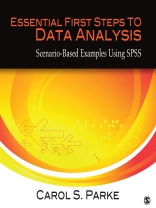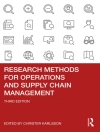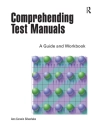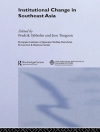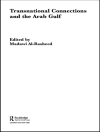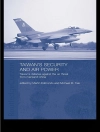Carol S. Parke′s
Essential First Steps to Data Analysis: Scenario-Based Examples Using SPSS provides instruction and guidance on preparing quantitative data sets prior to answering a study′s research questions. Such preparation may involve data management and manipulation tasks, data organization, structural changes to the data files, or conducting preliminary analysis. Twelve research-based scenarios are used to present the content. Each scenario tells the ‘story’ of a researcher who thoroughly examined their data and the decisions they made along the way. The scenario begins with a description of the researcher′s study and his/her data file(s), then describes the issues the researcher must address, explains why they are important, shows how SPSS was used to address the issues and prepare data, and shares the researcher′s reflections and any additional decision-making. Finally, each scenario ends with the researcher′s written summary of the procedures and outcomes from the initial data preparation or analysis.
Daftar Isi
Section 1. The Sample
Module 1. Checking the Representativeness of a Sample
Module 2. Splitting a File, Selecting Cases, Creating Standardized Values and Ranks
Section 2. Nature and Distribution of Variables
Module 3. Recoding, Counting, and Computing Variables
Module 4. Determining the Scale of a Variable
Module 5. Identifying and Addressing Outliers
Section 3. Model Assumptions
Module 6. Evaluating Model Assumptions for Testing Mean Differences
Module 7. Evaluating Model Assumptions for Multiple Regression Analysis
Section 4. Missing Data
Module 8. Determining the Quantity and Nature of Missing Data
Module 9. Quantifying Missing Data and Diagnosing its Patterns
Section 5. Working with Multiple Data Files
Module 10. Merging Files
Module 11. Aggregating Data and Restructuring Files
Module 12. Identifying a Cohort of Students
Tentang Penulis
Carol S. Parke, Ph.D. is an Associate Professor in the Department of Educational Foundations and Leadership at Duquesne University, teaching statistics, research, and measurement courses in masters and doctoral programs in the School of Education. She has a Ph.D. in Research Methodology and an M.A. in Mathematics/Statistics from the University of Pittsburgh as well as a B.S. in Secondary Mathematics Education from Indiana University of Pennsylvania. Dr. Parke’s 20 years of research ranges from the design and analysis of large-scale, long-term state and national assessment projects to working intimately with teachers in the classroom to show them how to collect and use data to make decisions and real-time, real-world improvement. Her work has appeared in research and practitioner journals in measurement, assessment, mathematics education, and statistics and includes “Using Assessment to Improve Middle-Grades Mathematics Teaching and Learning, ” a book for teachers on using performance assessment in mathematics classrooms.
